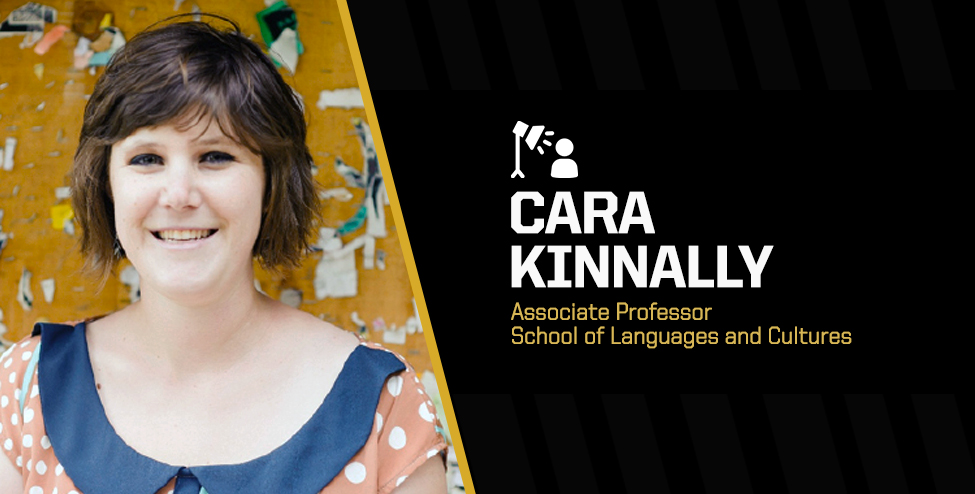Spotlight on Service-learning: Cara Kinnally

Cara Kinnally is an associate professor in the School of Languages and Cultures at Purdue University. As a professor of Spanish and Latin American Studies, she prioritizes teaching through a lens of social justice. To Kinnally, this looks like: (1) Giving students the space and time to reflect, (2) having them consider their positionality within the topic, & (3) encouraging students to sit on any discomfort they might feel while urging them to think.
As a service-learning (SL) fellow, Kinnally’s service-learning course focuses on the subject of social justice in the Hispanic world. Kinnally provides space for complexity and duality of identity in her scholarship as she shares that Latino History cannot be separated from American History. Oftentimes, these histories are taught separate from each other, but in a country where territory from the modern-day states of California, Nevada, Utah, New Mexico, Texas, most of Arizona and Colorado, and parts of Oklahoma, Kansas, and Wyoming used to be a part of Mexico, and where 19% of the population are Latinos (2022) it would be untruthful to ‘other’ their stories as un-American. An example of this longtime relationship can be found in Kinnally’s op-ed piece, which she wrote for The Washington Post. It discusses the history of Cinco de Mayo and can be found HERE.
A course focusing on social justice has been a goal of Kinnally’s, and with the help of the Office of Engagement (OoE) she is now laying down the groundwork. By working with the Lafayette Adult Resources Academy she aims to have students participate in their adult education program by leading workshops, assisting them in navigating community resources, and informing them of their rights. She is grateful for the theoretical knowledge, mentors, network of fellows, and guidance for course structure that comes with being a SL fellow. Apart from the fellowship, she has engaged in service-learning as an educator through her published works, such as Forgotten Futures, Colonized Pasts where she participates in restorative history focusing on the relationship between Mexico and the United States in the 19th century. (A description of her book can be found HERE)
From an early age, Kinnally saw connections between the experiences of her family and the local Hispanic community. Her mom’s family were immigrants from Italy. Her dad was an immigration lawyer. She was aware at a young age of the parallel experiences and differences, and grew up seeing the stories of overlapping communities as a shared history. In college, she studied abroad and traveled throughout Latin America, majored in Spanish, and in the process, she fell in love with their culture, history, and literature. Based on her own experience, her advice to colleagues looking to pair engagement with their discipline is to look into their interests and go from there. She feels that at Purdue, the perfect way to get started is becoming an SL fellow. As for students, she encourages them to get involved in social justice efforts at a local level that interest them in the same way she found her calling.